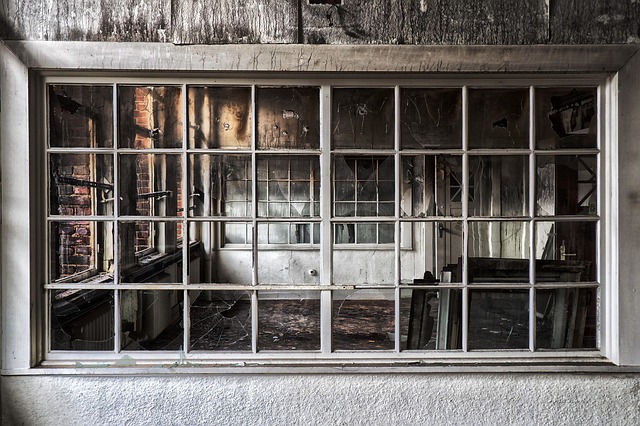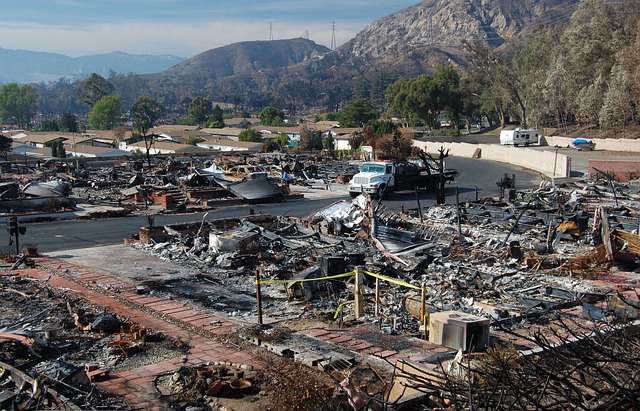After a fire in California, homeowners must navigate a complex property valuation process, including structural assessments, damage documentation, and understanding market trends and regulations. Specialized inspectors play a crucial role in accurate loss documentation. Consulting with a real estate attorney or experienced agent specializing in post-fire sales is essential for selling a damaged home. The process involves assessing mortgages, determining damage extent, negotiating with insurers, and thoroughly documenting losses. Proper documentation ensures fair negotiations and enhances market value through compliance with local building codes and historical/zoning categories. Engaging a specialist agent who understands post-fire sales can help attract buyers willing to overlook repairs or renovations.
In the aftermath of a fire, property valuation becomes a complex process in California. This article guides homeowners through the intricate steps of assessing and selling their properties post-fire. We explore legal considerations, insurance claims, and understanding fire damage repairs. Learn how to navigate the market with a fire-damaged home, ensuring a fair sale in this challenging scenario. Discover the crucial aspects of post-fire property valuation in California and unlock strategies for successfully marketing your home despite its history.
- Understanding Post-Fire Property Valuation in California
- Legal Considerations and Insurance Claims
- Assessing Fire Damage and Repair Costs
- Marketing and Selling a Fire-Damaged Home
Understanding Post-Fire Property Valuation in California

In the aftermath of a fire, understanding the process of property valuation in California is crucial for homeowners looking to rebuild or sell their damaged properties. Post-fire property valuation differs significantly from traditional appraisals as it considers not just the physical structure but also the impact of the disaster on the surrounding area and potential buyers’ perceptions. The first step involves assessing the extent of damage to the house itself, including structural integrity, roof condition, and interior repairs needed. This is often done by specialized inspectors who document the losses accurately.
California’s real estate market and local regulations play a significant role in post-fire property valuation. Homeowners can expect insurance adjusters and appraisers to consider factors like depreciated value due to fire damage, potential reconstruction costs, and the current housing market trends. If the damage is extensive, it may affect the property’s resalability, but with proper repairs and renovations, it can still command a price comparable to similar, undamaged properties in the area. For those considering selling a house that has fire damage in California, understanding these nuances is essential to ensuring a fair and accurate valuation.
Legal Considerations and Insurance Claims

After a fire, many homeowners wonder if they can sell their property in California. The first step is to understand the legal considerations and insurance claims process. In California, selling a house with fire damage is possible, but it’s crucial to consult with a real estate attorney or an experienced agent familiar with post-fire sales.
The legal process involves assessing any outstanding mortgage loans, determining the extent of damage, and negotiating fair compensation with insurance providers. For homeowners dealing with insurance claims, documenting the losses thoroughly—with photos, estimates from contractors, and medical bills if applicable—is essential. This documentation not only aids in the claims process but also ensures a more accurate representation of the property’s current state during negotiations for sale.
Assessing Fire Damage and Repair Costs

After a fire, assessing the extent of damage is crucial for homeowners considering their next steps. In California, where real estate transactions are common, understanding repair costs becomes even more critical when contemplating selling a house with fire damage. The first step is to document every damaged area meticulously. This includes taking photos and videos, noting the affected rooms or sections, and evaluating structural integrity. It’s essential to involve qualified professionals for accurate assessments.
These experts can provide detailed estimates on repair costs, which are vital for deciding whether to rebuild or renovate. In California, where a significant portion of properties fall under various historical and zoning categories, homeowners must also consider compliance with local building codes. Repairs that ensure the property meets safety standards and aesthetic considerations will enhance its market value when selling. Thus, understanding both the financial implications and legal requirements is key for navigating the post-fire property valuation process in California.
Marketing and Selling a Fire-Damaged Home

After a fire, many homeowners wonder if and how they can sell their property in California. The short answer is yes; it’s possible to market and sell a fire-damaged home. However, the process requires careful consideration and planning. The first step is to assess the extent of the damage—major structural issues may complicate the sale or require significant repairs that could impact the asking price.
Once the damage is evaluated, the next crucial move is to hire a professional real estate agent who specializes in post-fire property sales. These agents understand the unique challenges and have experience navigating insurance claims, repairing or rebuilding efforts, and marketing properties in their current state. They can help determine the best listing price, highlight the home’s positive aspects, and manage any potential buyer concerns related to the fire damage. Effective marketing strategies include high-quality photography showcasing the property’s features, transparent disclosures about the fire event, and targeted advertising to reach interested buyers who may be more forgiving of repairs or renovations needed after a fire.
After navigating the complexities of post-fire property valuation in California, understanding legal considerations, assessing damage, and planning for repairs or sale, it’s clear that selling a house with fire damage is achievable. By thoroughly documenting losses through insurance claims and accurately evaluating restoration costs, homeowners can strategically market their properties to buyers who appreciate resilience and potential. Remember, while fire damages can be significant, proper preparation and transparency are key to successfully selling a California home post-fire.






